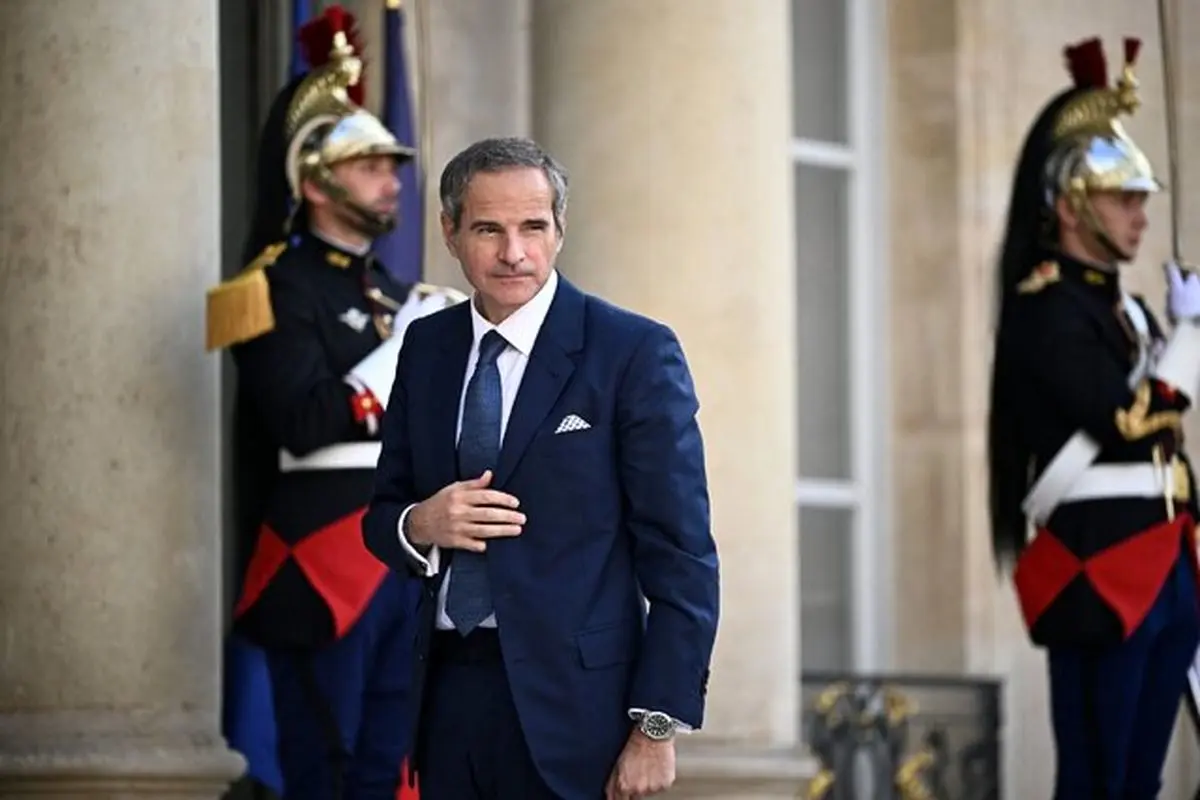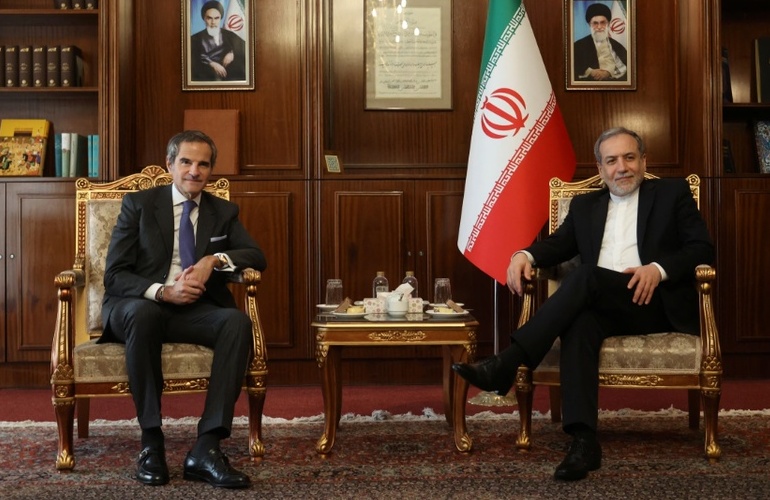SAEDNEWS: IAEA Director General Rafael Grossi confirmed that inspectors have returned to Iran following U.S.-Israel airstrikes, though cooperation remains suspended. While Europe weighs reactivating UN sanctions, talks continue on inspection mechanisms and the future of oversight.

According to Saed News, Rafael Grossi, Director General of the International Atomic Energy Agency (IAEA), said in an interview with an American network on Tuesday that when asked about media reports regarding a possible finalization of an agreement between Iran and the IAEA, he responded:

“When the airstrikes began, it was clear that inspections could not continue. It was a wartime situation, and we left the country. Since then, we have been in constant talks with Iran to create conditions for our return. This is not easy, because, as you can imagine, in Iran some see the presence of international inspectors as harmful to their national security, while others do not share this view. So, the question is what arrangements are needed for us to return and carry out our duties.”
On July 21, the United States, in participation with the Israeli regime’s aggression against Iran’s national sovereignty and territorial integrity, targeted its peaceful nuclear facilities with bunker-buster bombs. These facilities were seriously damaged, but neither Iranian officials nor the IAEA reported any increase in external radiation levels.
Iran suspended its cooperation with the IAEA due to Rafael Grossi’s failure to fulfill his legal obligations to protect Iran’s peaceful nuclear facilities during the U.S.-Israeli aggression, as well as his biased technical report on Iran’s nuclear program — a report that Tehran believes paved the way for the attack.
Although some level of technical talks between Iran and the IAEA is ongoing, Tehran has announced it is reviewing the form of cooperation with the Agency following recent developments.
A diplomat close to the IAEA, following Grossi’s announcement of inspectors’ return to Iran, said that although agreement on the level of access has not been finalized, it is expected to be reached. According to the Associated Press, citing this source, inspections will for now only cover nuclear facilities not affected by the U.S. and Israeli attacks.
Grossi told Fox News: “Iran is a member of the Non-Proliferation Treaty (NPT) and must be inspected. We have always raised this issue with the Iranian side. The first group of inspectors has now returned to Iran, and we are on the verge of resuming our work. Of course, Iran has many facilities; some were attacked, others not. So, we are now negotiating what mechanisms should be designed and implemented to allow the resumption of activities.”
When asked about meetings with officials from the administration of U.S. President Donald Trump during his trip to Washington, Grossi said:
“In Washington, I met with a number of U.S. government officials, including Steve Witkoff, the President’s special envoy. I had a good meeting with him. Since the beginning of the new administration, I have been in contact with him and have discussed various issues. Naturally, he is involved in many matters, but it is very important for the United States to closely follow this file and assess whether the possibility of bilateral negotiations, which were underway before these attacks, still exists. I shared my impressions and observations with them to see how we can move forward from this point.”
Responding to a question on the fact that while the Trump administration currently has no negotiations with Iran, the Europeans are actively engaged with Tehran, Grossi claimed:
“The U.S. officials I spoke to are strongly committed to maintaining peace, and in recent weeks we have seen some successes — meaning that despite the difficult circumstances, agreements and convergence between the parties on some issues have been possible. But the Iran file is a special case, because Israel is also involved, and the U.S. itself has carried out military action. This makes the process of resuming talks more difficult, but not impossible. By no means is it impossible.”
While Grossi did not condemn the attacks on Iran’s nuclear facilities, which were under IAEA safeguard agreements, and failed in his duties to protect them, he claimed in this interview:
“Only some conditions need to be met, and most importantly, our inspectors’ work must resume, because without IAEA oversight, no serious negotiations can take shape — especially if you want to prevent a repeat of what we saw in June.”
On the issue of activating the “trigger mechanism” and reimposing UN Security Council sanctions against Iran, Grossi said:
“As mentioned, this issue is not only about Iran; other players are involved too. The Europeans are now seriously considering reactivating sanctions. Whether they decide to do so or not is a question they must answer themselves. But to understand the situation, one must consider that before making a decision, they want to see whether Iran cooperates with the IAEA, whether inspections are restored, and whether the process returns to normal.”

